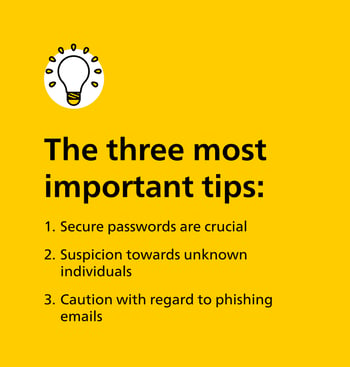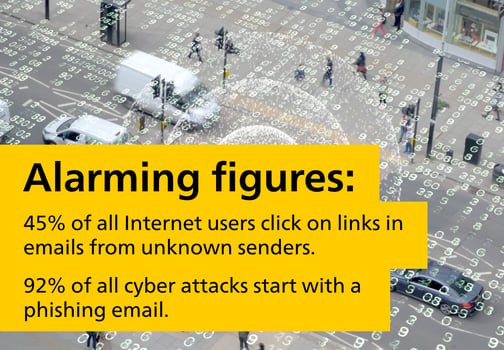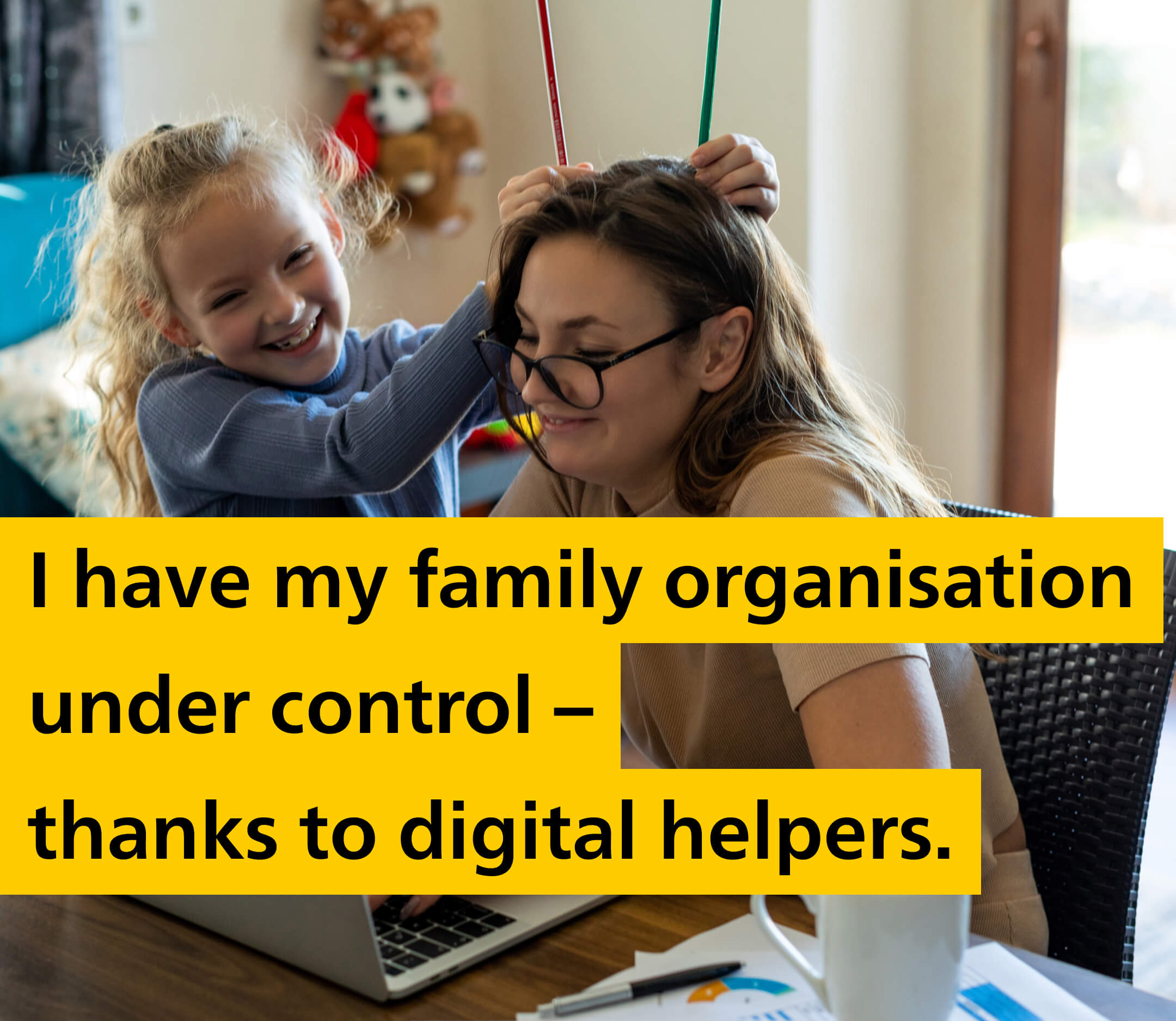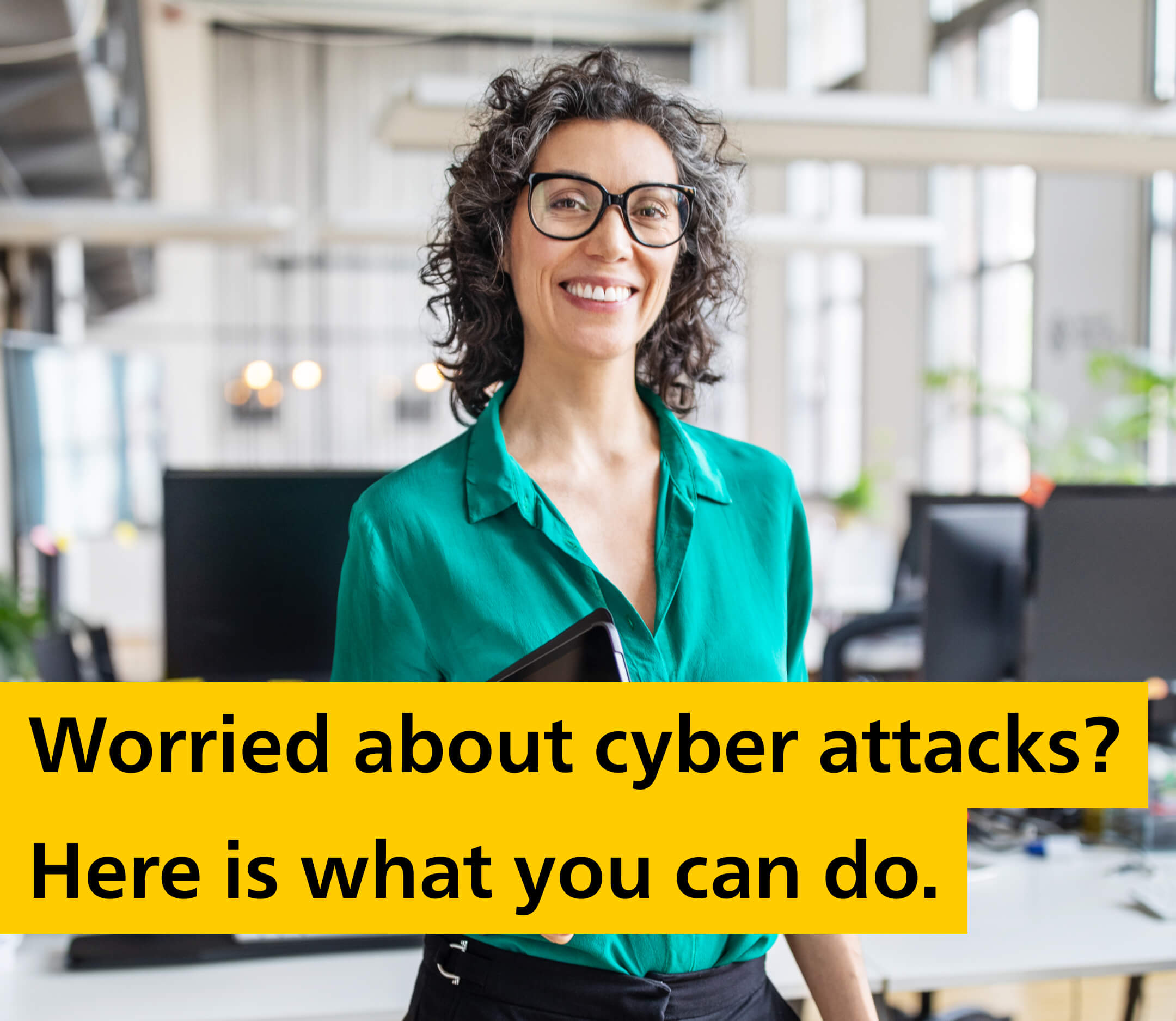How secure am I in the digital jungle?
The three most important tips for your security
Your security in the digital realm is extremely important. Find out here how you can prevent your data from falling into the wrong hands.
You might think that cybersecurity only concerns large companies or governments, and that as an average person, you’re of no interest to cyber criminals. But that’s a misconception.
In fact, even if you don’t possess anything valuable to steal, you can become a target of cyber attacks. Cyber criminals use automated attacks and often choose their victims randomly. As such, even as an individual, you are also exposed to digital risks such as loss of money and data, identity theft, or the breaching of your privacy.
With the following tips, you can strengthen your personal cybersecurity and protect yourself against the dangers in the digital world:

-
Your accounts are only as secure as your passwords
A weak password is comparable to leaving your front door wide open all day: you’re practically inviting criminals to pay you a visit.
Never write down your passwords, don’t share them with anyone, and use multi-factor authentication if possible. This provides an additional layer of security, as you perform a second verification step before accessing your account.
Other rules: use different passwords for each account that aren’t too similar, and change your passwords regularly.
If all of this seems too complicated, you might consider trying a password manager: these are applications that allow you to generate a secure password and store it in connection with your account. The application itself is protected by a complex master password or, on smartphones, by fingerprint or Face ID. This way, you only need to remember one master password.
-
Be suspicious of unknown people
When we’re at home in front of the computer, we feel safe - and that’s precisely why we’re particularly vulnerable. In what's known as "social engineering," criminals attempt to exploit you on an interpersonal level to gain access to your data or money.
The tactics of criminals using “social engineering” are becoming increasingly cunning: it was once Nigerian princes promising high profits out of thin air. Today, scammers frequent dating platforms and only demand money after a long getting-to-know-you phase, during which victims have already fallen in love. They impersonate administrators in online games or pretend to work for reputable companies.
Be suspicious of unknown individuals who suddenly need financial support or ask for confidential data. Don’t be swayed by moving stories or pressure, but always verify the identity of the person before taking action.
-
Don’t get hooked like a fish by criminals!
Phishing emails are a particularly insidious form of “social engineering”: you may receive emails that seem to come from an important company such as Facebook or eBay, your bank or insurance company. You’re asked to log in via a link on a corresponding website, otherwise your account will be deleted, for example.
It’s almost certain that such an email is fake. Financial and insurance companies in particular will inform you first via phone or mail. If you’re still unsure, call the provider’s customer support. You’ll usually find this fairly quickly on Google.
Don’t open links or attachments from unknown senders. Attachments in particular pose the risk of infecting your device with ransomware: these are malicious programs, also called ransomware or crypto-trojans, that allow a criminal to block access to the entire computer system, then demand a high ransom to unlock it.

And how does your security with ePost look?
ePost treats privacy as a valuable asset and guarantees the principle of postal privacy even in the digital world. Swiss Post stores all data and documents in Switzerland and encrypts them multiple times to ensure that what’s private remains private. In addition, ePost scans incoming mail for viruses and uses two-factor authentication during login. With these measures, ePost ensures an immensely high standard of security; higher, for example, than the usual e-mail providers or other tech giants.
Privacy is ePost's top priority
Threats in the digital realm are constantly evolving. However, by staying informed about the latest cybersecurity risks, you can maintain effective protection. Here at the ePost Academy, we regularly write about the latest cybersecurity trends for you. So, feel free to check back regularly to continue navigating the digital world stress-free.
You May Also Like
These Related Stories

Manage the family routine stress-free with these 10 apps.

Cyber attacks: how to protect your company

No Comments Yet
Let us know what you think